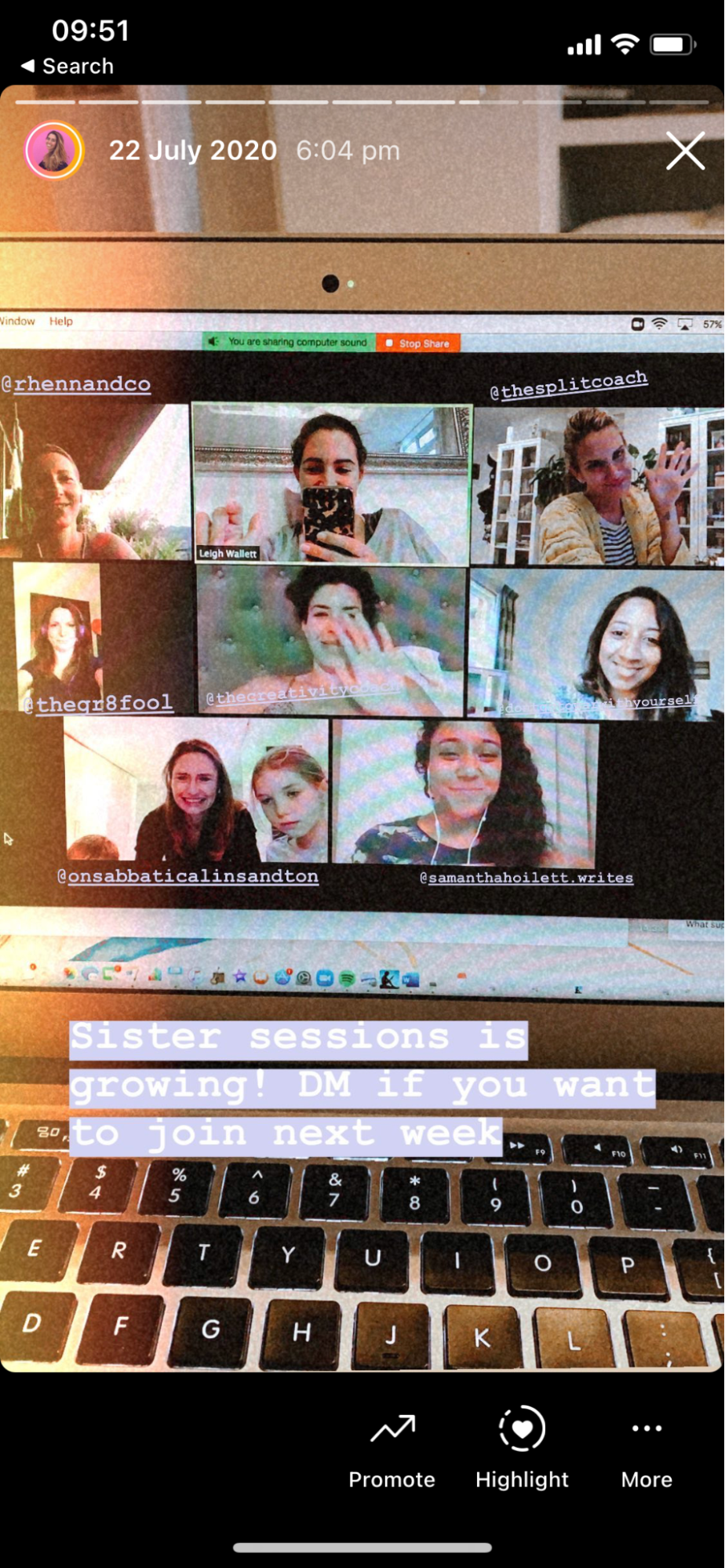If you've ever been an employee, I bet you've fantasized about resigning at least once. I was one of those Fortune 500 employees who caught a company shuttle to an office park. This was prime time for podcasts and fantasizing about life outside the office.
My corporate work experience was pretty rare. I didn't follow a pre-defined career path. I started as an executive assistant and moved to being a business analyst. I then reinvented myself as an Agile coach. In the later years of my career, I saw myself as an intrapreneur, bringing an entrepreneurial mindset into corporate land.
Despite my upward career trajectory, I decided to leave the safety net of a salary. I wanted to test my entrepreneurial skills without the plush office and canteen lunch. With a head full of podcasts, Instagram posts, and courses, I launched an online coaching business as a solopreneur in January 2020.
But I quickly realized I wasn't prepared. As helpful as all the online resources were, putting them into practice didn't translate into sustainable work. So instead, I turned back to the structure I'd learned in big business. Here are the Fortune 500 lessons I used to launch and run my solopreneur business.
1. Company vision and values matter

In a large organization, the topic of "culture" feels like a perpetual philosophical debate. You can spend days in workshops thinking about changing hearts and minds with an inspiring vision and connected values. But really, the layers of hierarchy and individual motivation are near impossible to shift.
As a solopreneur, you have the advantage of creating a vision and values that are literally from your heart.
Defining my personal vision of success and values gave me the confidence to leave my job. It suddenly became clear that my lifestyle didn't match my values. While my job provided financial security and access to a luxurious lifestyle of restaurant dinners and designer handbags, I had very little personal time. I realized I preferred long walks in nature and sunrise swims in icy lakes, not midnight dinners and business class travel.
I started my business based on my values and vision. This helped me prioritize the work that moved me closer to my dreams. It has also kept me motivated at times when work is overwhelming or uncertain.
2. Promote yourself to CEO

Starting my career as an executive assistant gave me insider knowledge of how CEOs work.
Before the 2008 financial crisis and subsequent cost cuts, I worked in a team of five supporting one CEO. On top of scheduling private jets and meetings with presidents, we made sure there was time for exercise. The CEO was a better person with a regular swim or walk. My biggest takeaway from working in a range of executive offices: CEOs are people too. And you have every right to give yourself the same respect as a CEO.
Start by giving yourself VIP treatment. You may not get red carpets rolled out or private jets, but you can take yourself seriously. Get to know your energy. Find a routine that supports you. Nourish yourself with good food. Take breaks for fresh air and exercise.
Most importantly, respect your time. When working with clients and customers, remember the value of your energy. Be strategic with taking on work and clients that inspire you. You have the power to say no to work that may be costing you more than money.
3. Bootstrap your budget

"Disrupt or be disrupted" is the sentiment echoing around traditional businesses. In my final years of corporate life, I worked as an Agile lead on a modernization and transformation team. We wanted to bring the start-up dream to a 100+-year-old company.
Ironically, despite recessions and cost cuts, having a budget often got in the way of doing things differently.
As a solopreneur, I have one option: bootstrap. I have to work effectively and create value, or I don't get paid. I launched the bare bones of my business in a day and announced to the world on Instagram that I was open for business. With that, I put together a landing page with a link to a playlist of the podcasts that inspired me in exchange for email addresses. (I've learned a ton about digital design since then, and my taste in podcasts has changed dramatically, but this page served its purpose.)
Within a week, I had a website up and running—which I then spent three months editing as I learned more about copywriting.
Bootstrapping helps you understand what creates value. Learn from corporate aspirations, and do what big companies struggle to.
4. Use coffee as currency
When I wanted to move out of my PA role, I didn't fit any other job description. The advice I was given was to network. Reach out to people for mentorship. Set up a 30-minute coffee to learn about what they do.
In a 70,000 person organization, I quickly found connections. Through that network, I could informally show how my skills translated to other jobs and eventually got a role as a business analyst.
As a solopreneur, my new office is my Instagram account. Here, I have one billion people to network with. Instead of being overwhelmed, I act as if each person I connect with is a colleague—this gives me the confidence to build new relationships.
From my growing network, I've experienced the value of relationships beyond finding new clients. I collaborate with other business owners hosting workshops and creating resources. I even created a community by hosting co-working calls and virtual coffee catch-ups.

These personal relationships led to business opportunities I couldn't have imagined when I started. In addition to my coaching work, I now have a writing service, where I share coaching insights for start-ups and consultancies. And I use my networking skills to help companies start their own communities of practice.
If you're working on growing your career network, here are 4 ways to automate your networking.
5. Do quarterly performance reviews
I used to dread performance reviews. It felt tacked on to my work and like I had to retroactively match what I'd done to some abstract goals. So the last thing I expected was to keep performance reviews as part of my solopreneur lifestyle.
But with the pace of learning, growing, and adapting, I've found that giving myself a quarterly "away day" helps me clarify my priorities and focus.
I also discovered something new in these quarterly reviews: they gave me space to adapt my schedule with the seasons. One of the best benefits of working for yourself is managing your own time. Now I'm more aware of matching my schedule to my energy: in winter, I sleep in later; in summer, I take beach breaks.
I use these times to focus on my life holistically. They've been so effective that I created a group coaching program called Q Review. In this program, we gather as a group of CEOs to support each other and create the space to align our lives with our legacy.
6. Find your work rhythm

In 2009, meeting "cadence" was the buzzword in our office. We experimented with schedules to see what was the most effective cycle for meetings. And when I discovered Agile, I fell in love with two-week sprints.
While I don't have colleagues to meet with, I still enjoy working in a two-week rhythm. In fact, I've found an unusual accountability buddy: the moon. The full and new moon are roughly two weeks apart. On the Monday (Moon-day) closest to the full and new moon, I set an intention for the next two weeks. These intentions have replaced rigid goals, and the practice keeps me honest in how I'm structuring my time.
At the end of the two weeks, I hold a personal retrospective and look for an improvement I can make in my process.
7. Consider your future org chart
The most confidential meeting I ever organized was called the "chessboard": it's where the organization chart was discussed. Who would take over what role? Who was up and coming? If you were discussed in that meeting, your career was looking good.
You're the CEO of your business, but you're also likely the cleaner too. Washing the dishes is never off my to-do list for long. So even though I'm bootstrapping my business, I like to act as if I have a team, to account for all the different roles I play.
I keep track of how much my time is worth and how much it would cost to outsource different jobs. Why? There will be many growing pains in a new business, but deciding when to hire someone can be one of the most challenging. If you know how much you should be paying yourself—even if you're not earning that income yet—you'll know how much your time is worth. This will make it easier to know when you're ready to outsource or hire regular support.
Freelance freedom
I left my Fortune 500 job to align with my value of personal freedom. It might seem like freedom is about being fluid, but I've found that using the structure I learned in corporate has given me the support I was looking for. This support gives me the confidence to create the business and lifestyle I was searching for, and it's led to new growth and business opportunities as it helped me reinvent my career.









